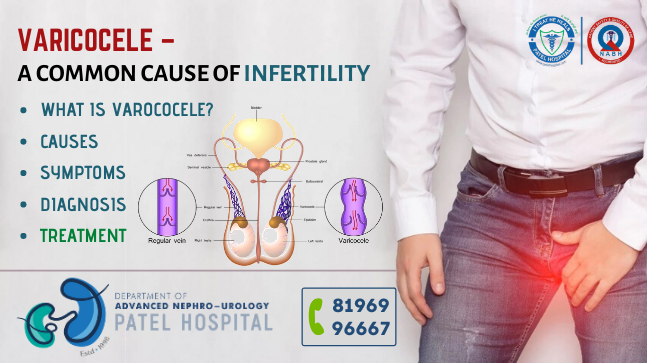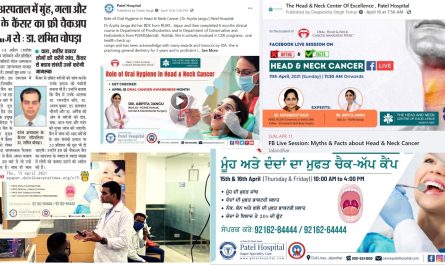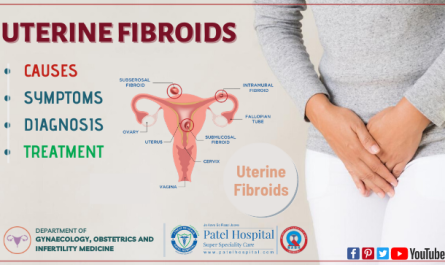What is a varicocele?
Varicocele is the abnormal dilatation of testicular veins which become tortuous and enlarged. This condition is mostly present on the left side.

How does varicocele develop?
Testis blood return through testicular vein requires a valve mechanism to prevent the backflow of blood. The incompetence of this valvular mechanism leads to the development of varicocele. It is seen commonly on the left side due to anatomical variation. Isolated right side varicocele may represent an underlying right kidney tumor.
What are the symptoms of varicocele?
Varicocele can be asymptomatic or present with
- Dull aching/dragging pain or discomfort in groin and scrotum
- Scrotal enlargement
- Small testis same side
Is having varicocele worrisome?
Varicocele is present in up to 15% of adult men. Not all have symptoms due to their presence. People can have dull aching or dragging pain in the scrotum. Varicocele is the common cause of infertility. Varicocele can affect testis size and semen parameters. Up to 30-40% of patients with primary infertility (never having normal fertility) and 60-70% with secondary infertility (having prior normal fertility) are diagnosed to have varicocele as the cause of infertility. Long-standing varicocele can also affect testosterone production.
How to diagnose this condition?
Diagnosis is generally made examining scrotal contents with the patient in standing position. Ultrasound doppler may be required to look for testis atrophy and early-stage varicoceles. Isolated right-sided varicocele warrant doing an ultrasound of the kidney.
How can I prevent varicocele?
Since the cause of varicocele is largely determined by familial and genetic factors, no preventive measures are beneficial.
Is there any severity grade of varicocele?
Varicocele is graded into 3 grades as the enlargement of veins increases.
Grade 1 – palpable only on Valsalva maneuver (taking a deep breath and holding it while bearing down) or diagnosed on ultrasound
Grade 2 – palpable on clinical examination
Grade 3 – visible veins are seen in the skin of the scrotum
Which patients need treatment?
Not all patients require treatment. They need treatment if having
- Persistent pain
- Infertility with abnormal semen parameters
- Small-sized testis
- Infertile patient planning for assisted reproductive techniques
How varicocele causes infertility?
Normal sperm production from testes requires 2-3 degrees less temperature. Varicocele increases intra-scrotal temperature due to the pooling of blood. The most common semen abnormalities seen are oligospermia (decrease sperm count) and asthenospermia (decrease sperm motility).
What are the treatment options for varicocele?
- Conservative measures like tight scrotal or a jockstrap may alleviate pain in some patients with low-grade varicocele.
- Microsurgical varicocelectomy – This is the most common surgical procedure employed. In this daycare procedure with the patient under spinal anesthesia, a small incision (2-3 cm) is made in the lower groin region to get access to the cord of testis which harbors the enlarged tortuous testicular veins and is then carefully ligated individually under microscopic magnification.
- Laparoscopic ligation – In this surgery, the enlarged testicular vein is approached through the abdomen with the patient in general anesthesia.
- Embolization – In this non-surgical procedure, the enlarged vein is blocked with small metal coils. The procedure is conducted by passing a small catheter through the groin or the neck. This avoids any surgical incision but the risk of varicocele recurrence is high.
What are the risks of surgery?
Risks with varicocele surgery are its recurrence and hydrocele (fluid collection in the scrotum) formation. Both these risks are lowest with microsurgical varicocelectomy surgery.
What to expect after surgery? If surgery is done for abnormal semen parameters, 60-80% of patients find improvement in their semen analysis. In infertile patients, nearly 40-50 % can impregnate a woman successfully in one year.




